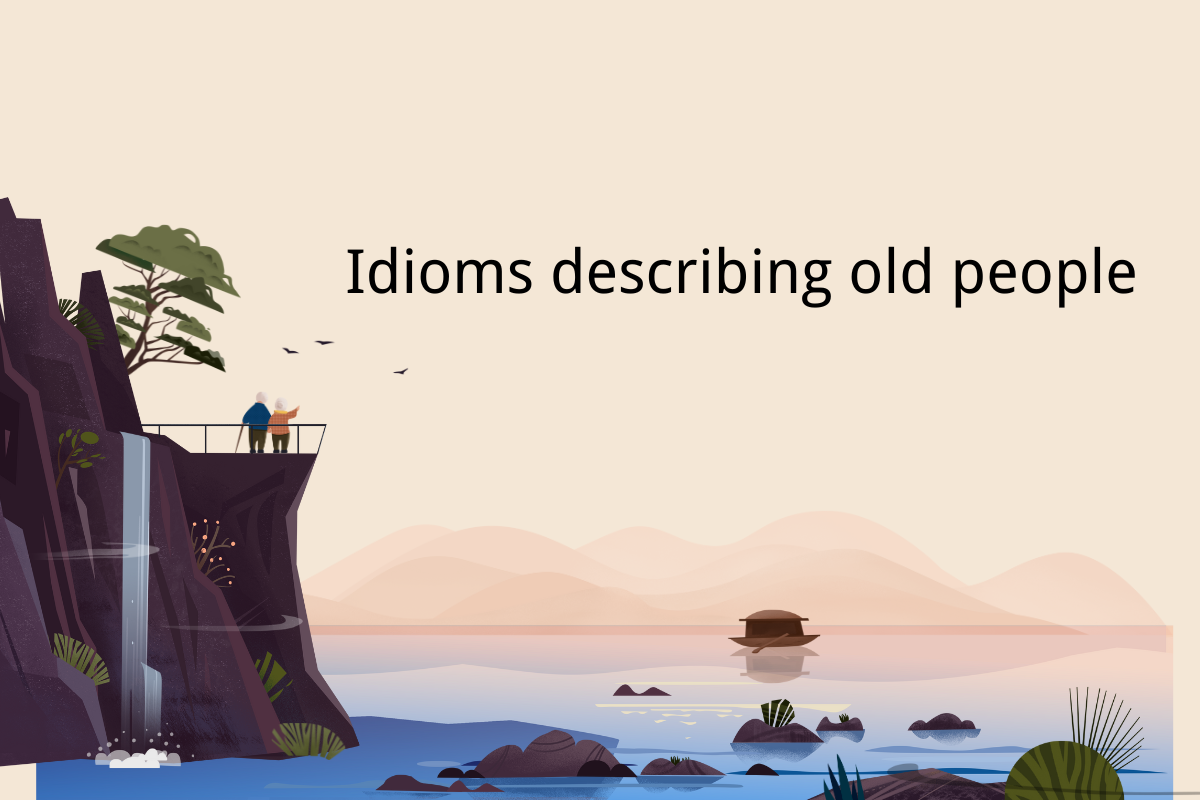Idioms Describing Old People
In every culture, language is rich with idioms that capture the essence of life's various stages. When it comes to describing old age, Chinese idioms offer profound insights into the wisdom, experience, and demeanor of elderly individuals. Let's explore two evocative idioms—"老态龙钟" (lǎo tài lóng zhōng) and "老气横秋" (lǎo qì héng qiū)—and delve into the imagery they convey about the graceful aging process and dignified presence of old people.

老态龙钟 (lǎo tài lóng zhōng): Graceful Aging
In Chinese culture, the dragon is revered as a symbol of power, wisdom, and longevity. The idiom "老态龙钟" paints a vivid picture of old age characterized by a dignified and majestic presence, reminiscent of the mythical dragon. It describes how elderly 老年人 (lǎo nián rén) individuals exude an aura of wisdom and grace, with each movement and gesture reflecting a lifetime of experiences and lessons learned. When we use this idiom to describe old people, we are acknowledging their dignified and noble bearing, as well as their invaluable contributions to society over the years.
老年人 (lǎo nián rén), noun, elderly
Examples:
- The elderly often enjoy taking walks in the park.
老年人经常喜欢在公园里散步。
lǎo nián rén jīngcháng xǐhuān zài gōngyuán lǐ sànbù. - We should show respect to the elderly.
我们应该尊重老年人。
wǒmen yīnggāi zūnzhòng lǎo nián rén.

老气横秋 (lǎo qì héng qiū): Dignified Presence
The idiom "老气横秋" depicts the dignified demeanor and commanding presence of old people. It conveys the image of an elderly individual who carries themselves with confidence, authority, and a sense of pride in their age. Despite the passage of time, their spirit remains strong and their presence commands respect 尊重 (zūn zhòng). When we use this idiom, we are recognizing the resilience, strength, and wisdom that come with age, as well as the enduring legacy of old people in shaping our communities and cultures.
尊重 (zūn zhòng), verb, respect
Examples:
- We should respect our elders.
我们应该尊重我们的长辈。
wǒmen yīnggāi zūnzhòng wǒmen de zhǎngbèi. - She always respects other people's opinions.
她总是尊重别人的意见。
tā zǒngshì zūnzhòng biérén de yìjiàn.
Key Sentences:
- The old grandmother walks with a dignified presence, exuding an aura of dignity and authority.
老奶奶走路的姿态庄重,散发着老气横秋。
Lǎo nǎinai zǒulù de zītài zhuāngzhòng, sànfāzhe lǎo qì héng qiū. - This painting vividly depicts the graceful aging of the elderly.
这幅画生动地展现了老人们的老态龙钟。
Zhè fú huà shēngdòng de zhǎnxiànle lǎo rénmen de lǎo tài lóng zhōng. - Despite his advanced age, he still maintains a dignified presence and demeanor.
他虽然已经年迈,但依然保持着老气横秋的风范。
Tā suīrán yǐjīng niánmài, dàn yīrán bǎochízhe lǎo qì héng qiū de fēngfàn.